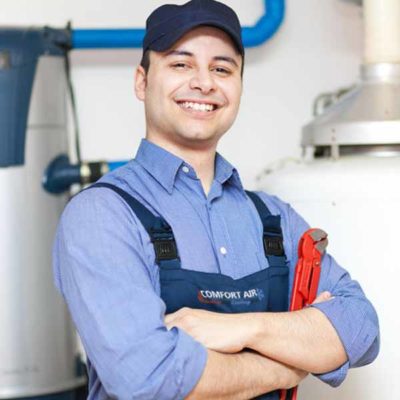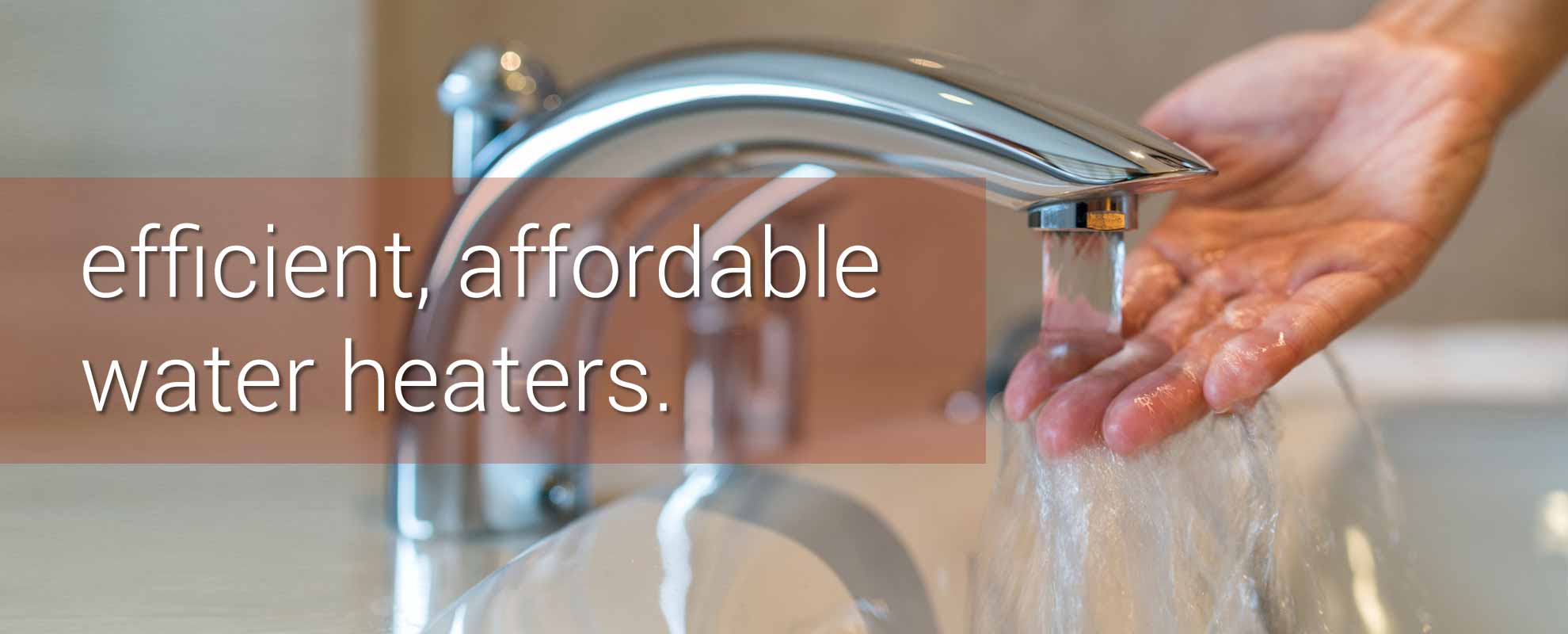“Next to heating and cooling, water heating is typically the largest energy user in the home.”
 As homes have become more and more energy efficient during the last 20 years, the percentage of energy used for water heating has steadily increased.
As homes have become more and more energy efficient during the last 20 years, the percentage of energy used for water heating has steadily increased. A Comfort Air heating & cooling Technician can help you select the water heater that can best reduce water heating costs and increase comfort in your home.
Selecting a New Water Heater:
There are numerous factors to consider when choosing a new water heater, including type (solar, tankless or storage), capacity, efficiency, and cost.Storage Water Heaters:
- One-of-a-kind air/fuel shut-off device offers double protection
- A specially-designed flame arrestor prevents ignition of vapors outside the combustion chamber
- Superior air filtration prevents it from getting clogged by lint, dust, and oil
- Maintenance free – no filter to clean
- Low NO2 design for cleaner healthier air inside your home
- Reduces fuel costs
- High Efficiency means more hot water at lower operating cost
- Meets or exceeds National Appliance Energy Conservation Act
- Limited tank and parts warranty from 6 to 8 years
Capacity.
Don’t buy a water heater bigger than you need. Although some consumers base their purchase on the size of the storage tank, the peak hour demand (or first-hour rating, FHR) is actually more important.
The FHR is the measure of how much hot water the heater will deliver in an hour and is required by law to appear on the Energy Guide label. Your Comfort Air heating & cooling Technician will perform a capacity test to determine the right size water heater for your home.
Efficiency.
The energy efficiency of a storage water heater is indicated by its “Energy Factor” (EF). The higher the EF, the more efficient the water heater. Gas water heaters have an EF between 0.50 and 0.60, with some high-efficiency models around 0.80.
Other features to look for are tanks with at least 1.5 inches of foam insulation and energy efficiency ratings shown on the Energy Guide labels.
It may be tempting to look for a water heater that is inexpensive and ignore the operating cost. This is a poor strategy. Often the least expensive water heaters are the most expensive to operate.
A high-efficiency water heater may cost a little more initially, but reduced operating costs will more than make up for the higher outlay. Check the Energy Guide label to help choose an energy thrifty heater.
Have water heater questions? Just give us a call, we’re here to help you!
519.568.8878
FREE QUOTE




